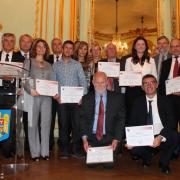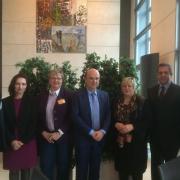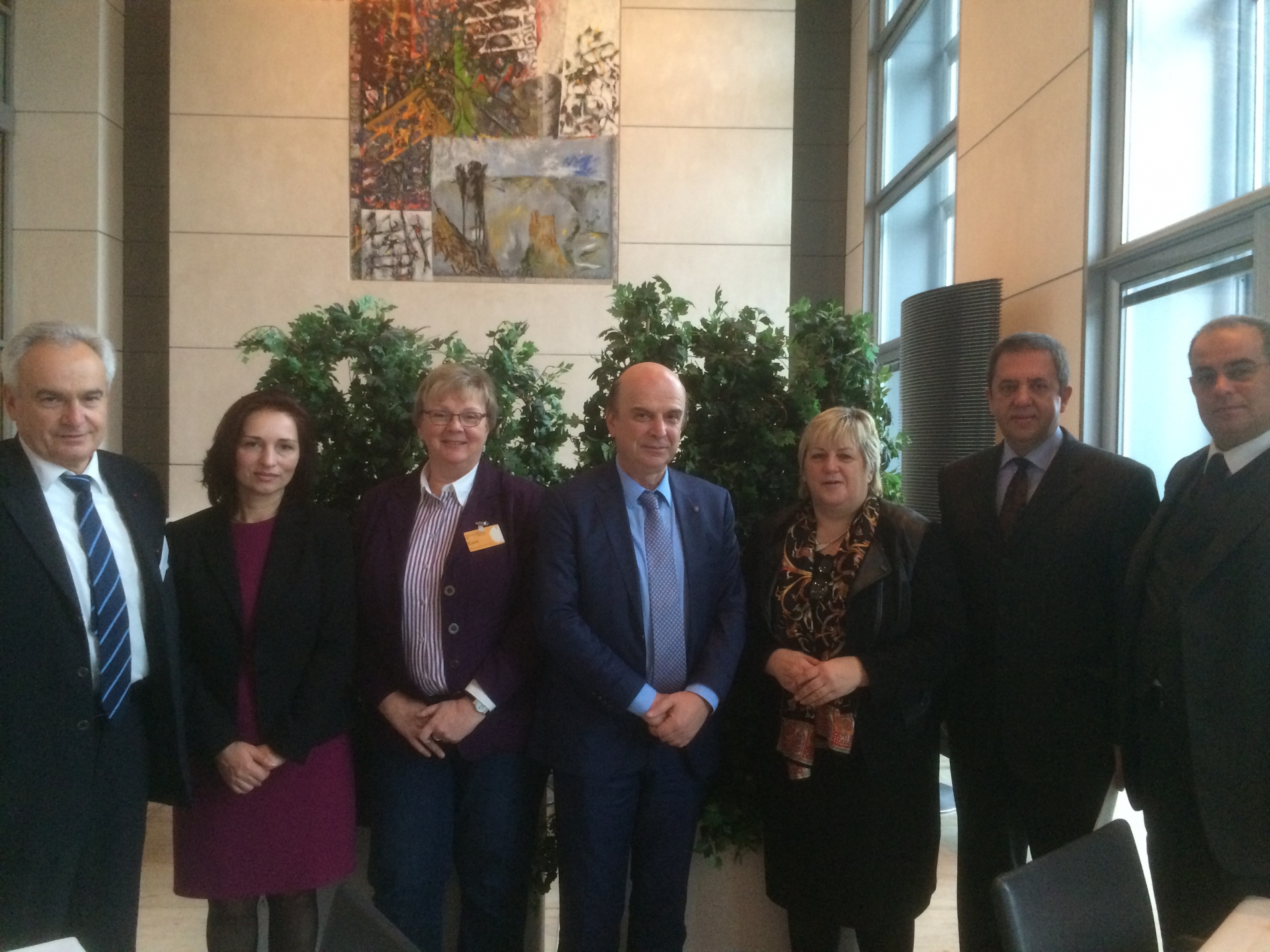
The increase in the number of works presented to the OIV Award Jury is related not only to the growth in worldwide literature about vine and wine by many authors, but also the significant international recognition of the OIV Awards : a benchmark in a sector which continues to grow and develop.
For information on the Award Jury and the OIV Awards : Download the document
- What does the Award presented by the Award Jury provide?
- What are the categories specified by the Award Jury?
- What are the terms and conditions for submitting a work?
http://www.oiv.int/en/international-organisation-vine-and-wine/oiv-awards, contact jurydesprix@oiv.int
Registration until 28 February each year: submission form to download

They also met with the German Federal Minister for Food and Agriculture, Christian Schmidt. Monika Christmann and Jean-Marie Aurand had several meetings with the Ministers and representatives for the OIV Member States present in Berlin.
During a breakfast in the parliament building at the initiative of Ms Kordula Kovac, member of the German Bundestag (national parliament) and also President of the "Wine Group", the OIV President and Director General met with Mr Edmond Panariti, Albanian Minister for Agriculture. The Minister showed a keen interest in the OIV and its missions at a time when Albania wishes to revive its wine production and modernise the sector.
